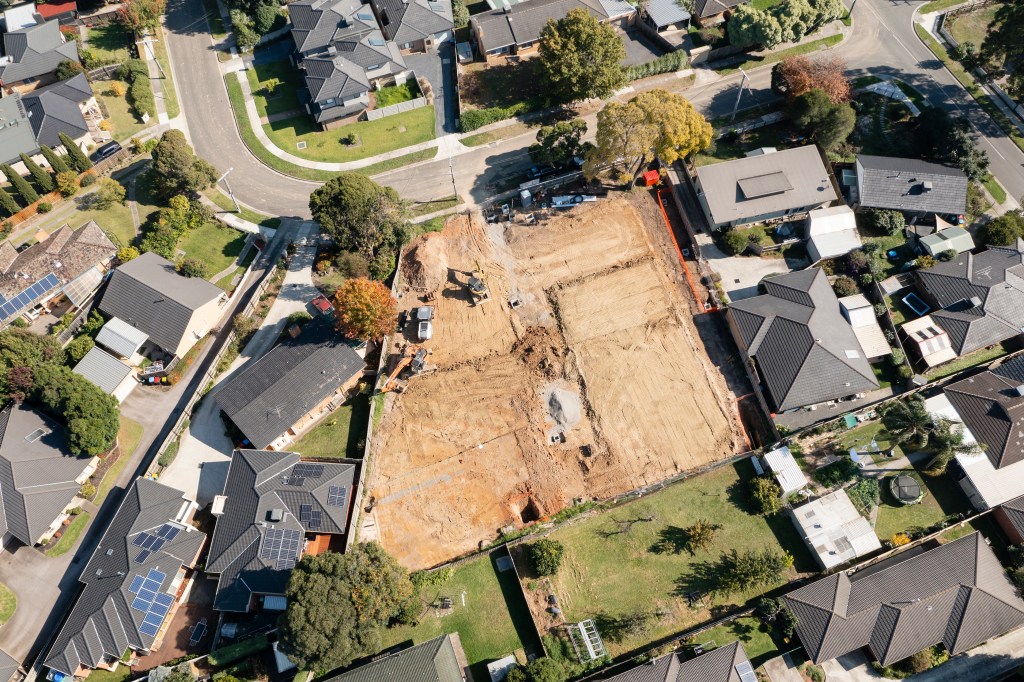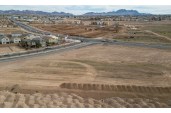Lennar filed Form S-11 with the Securities and Exchange Commission (SEC) for the planned spin-off of its recently formed subsidiary, Millrose Properties. According to the filing, Millrose intends to elect and qualify to be treated as a real estate investment trust (REIT) for tax purposes, beginning with its first taxable year ending Dec. 31, 2025.
The spin-off is a continuation of Lennar’s volume-based strategy of driving sales and cash flow while using margin “as a shock absorber” as the home builder migrates toward an asset-light, land-light business model.
Below are four takeaways from the S-11 filing.
Not a Traditional Land Company or Land Bank
Millrose Properties was incorporated under the laws of the State of Maryland for the purpose of being spun off into an independent publicly-traded company. Millrose will finance land development activities, including the installation of all necessary infrastructure required to build homes—drainage, sewage, water lines, roads, sidewalks, utility lines, grading, landscaping, and, in some cases, the construction of recreational facilities, common area elements, and other amenities.
According to the filing, Millrose is not intended to be a traditional land company nor a traditional land bank. Instead, Millrose is designed to offer recycled capital to purchase, own, and finance relatively short-duration land and the horizontal development of that land for the purpose of delivering fully developed home sites to builders. Millrose is designed to recycle the capital it receives from the sale of its land assets to fund future transactions.
The filing states Millrose’s assets are intended to perform more like “work-in-progress” assets than like traditional land assets, due to the shorter term duration, the limited entitlement risk, and other unique contractual attributes.
Initially at the time of the spin-off, Lennar will be Millrose’s only customer. The REIT has engaged in discussions with other builders, but “there is no guarantee that Millrose will be successful in negotiating agreements with additional customers,” according to the filing.
Operational Structure and Financing
Lennar will distribute approximately 80% of the outstanding shares of Millrose’s common stock to Lennar’s existing Class A and Class B common stockholders in a partial, taxable spin-off. The remaining 20% will be disposed of in a spin-off, split-off, or another transaction, according to the filing.
Lennar will contribute the use of its homesite option purchase platform, approximately $5 billion to $6 billion of land assets, and up to approximately $1 billion in cash. Lennar has been designing and refining its homesite purchase platform for more than two decades. According to the filing, the homesite purchase platform will provide Millrose with capital to purchase shorter duration land, to develop that land, and deliver “just in time” finished homesites to Lennar and other home builders.
According to the filing, Millrose will agree to use approximately $900 million of Lennar’s cash contribution to acquire the land assets of Rausch Coleman—which Lennar acquired in November 2024.
Lennar’s “Certain Exclusive Rights”
Although Millrose will be independent from Lennar following the spin-off, Lennar will have “certain exclusive rights” as the REIT’s founder and initial contributor of assets. The exclusive rights are intended to assure Lennar will have access to the home sites that it has the option to purchase from Millrose.
For Lennar, the Millrose spin-off is not intended to replace organically negotiated option agreements with developers or other relationships the home builder has with private equity providers. Instead, Lennar views Millrose as additive to those relationships and believes the spin-off “constructively accelerates our stated goal of becoming a ‘land light’ home building manufacturer,” according to a note to shareholders from executive chairman and co-CEO Sturt Miller in the S-11 filing.
Leadership Structure
Millrose intends to remain a holding company without any operations of its own. Following the spin-off, Millrose will be externally managed by Kennedy Lewis Land and Residential Advisors (KL), with KL personnel serving as all officers and employees of Millrose.
Millrose’s executive officers will consist of:
- CEO and president Darren Richman
- Chief financial officer and treasurer Garret Rosenblum
- Chief operating officer Robert Nitkin
- General counsel and secretary Rachel Presa
- Chief technology officer Adil Pasha
The Millrose board of directors will include:
- Chair of the board of directors Carlos Migoya
- Director Patrick Bartels
- Director Matthew Gorson
- Director Kathleen Lynch
- Director M. Allison Mincey



